
The Ancient Echoes of Copán Ruinas
Nestled in the verdant hills of western Honduras, Copán Ruinas is a treasure trove of history and natural beauty. This charming town is best known for its proximity to the ancient Mayan ruins of Copán, one of the most important archaeological sites in Mesoamerica. The ruins offer an extraordinary glimpse into the Mayan civilization, showcasing intricate stone carvings, towering pyramids, and the famous Hieroglyphic Stairway. Visitors can wander through the remnants of this once-thriving city, marveling at the artistry and ingenuity of the ancient Mayans. Beyond the ruins, Copán Ruinas itself is a delightful destination. The cobblestone streets are lined with colorful buildings, local markets, and quaint cafes that invite you to explore and relax. The town's warm and welcoming atmosphere makes it easy to immerse yourself in the local culture. Be sure to visit the Copán Sculpture Museum, which houses an impressive collection of artifacts and offers deeper insights into the Mayan world. Nature lovers will find plenty to enjoy in the surrounding area. The Macaw Mountain Bird Park and Nature Reserve is a must-visit, where you can see vibrant macaws and other native birds up close. For those seeking adventure, there are opportunities for hiking, horseback riding, and even hot springs to unwind after a day of exploration. Whether you are a history buff, a nature enthusiast, or simply looking to experience the charm of a small town, Copán Ruinas has something to offer everyone.
Local tips in Copán Ruinas
- Wear comfortable shoes for exploring the ruins, as the terrain can be uneven.
- Visit the ruins early in the morning to avoid the midday heat and crowds.
- Try the local cuisine at the town's markets and eateries for an authentic taste of Honduran flavors.
- Bring insect repellent, especially if you plan to visit the nearby nature reserves.
- Hire a local guide at the ruins for a more informative and enriching experience.
The Ancient Echoes of Copán Ruinas
Nestled in the verdant hills of western Honduras, Copán Ruinas is a treasure trove of history and natural beauty. This charming town is best known for its proximity to the ancient Mayan ruins of Copán, one of the most important archaeological sites in Mesoamerica. The ruins offer an extraordinary glimpse into the Mayan civilization, showcasing intricate stone carvings, towering pyramids, and the famous Hieroglyphic Stairway. Visitors can wander through the remnants of this once-thriving city, marveling at the artistry and ingenuity of the ancient Mayans. Beyond the ruins, Copán Ruinas itself is a delightful destination. The cobblestone streets are lined with colorful buildings, local markets, and quaint cafes that invite you to explore and relax. The town's warm and welcoming atmosphere makes it easy to immerse yourself in the local culture. Be sure to visit the Copán Sculpture Museum, which houses an impressive collection of artifacts and offers deeper insights into the Mayan world. Nature lovers will find plenty to enjoy in the surrounding area. The Macaw Mountain Bird Park and Nature Reserve is a must-visit, where you can see vibrant macaws and other native birds up close. For those seeking adventure, there are opportunities for hiking, horseback riding, and even hot springs to unwind after a day of exploration. Whether you are a history buff, a nature enthusiast, or simply looking to experience the charm of a small town, Copán Ruinas has something to offer everyone.
When is the best time to go to Copán Ruinas?
Iconic landmarks you can’t miss
Copan Ruins
Discover the Paris of the Mayan world: Explore Copan's intricate sculptures, hieroglyphs, and royal history amidst a lush Honduran rainforest, a UNESCO World Heritage site.
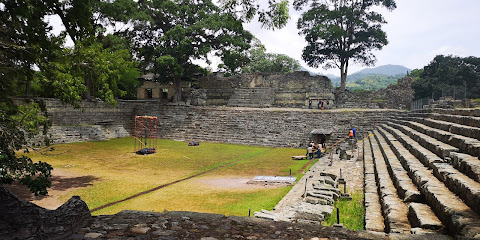
El Cerrito
Discover panoramic views and a monument of faith at El Cerrito in Santa Rosa de Copán, a historical park offering a glimpse into the city's heart and heritage.
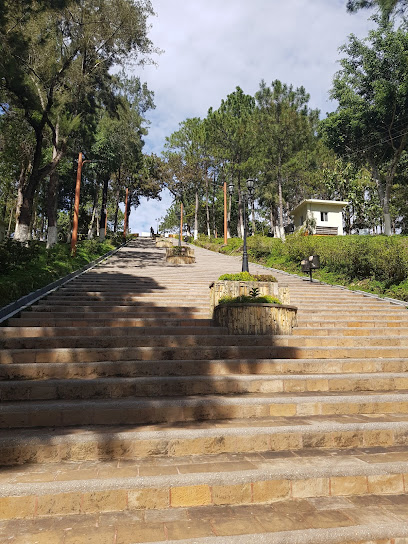
Macaw Mountain
Explore the breathtaking beauty of Macaw Mountain, a premier bird-watching sanctuary in Copán, home to vibrant macaws and lush landscapes.
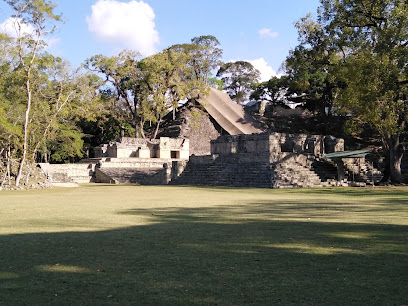
Parque Central
Explore the tranquil beauty and cultural vibrancy of Parque Central, the heart of Copán Ruinas, where history and nature intertwine.
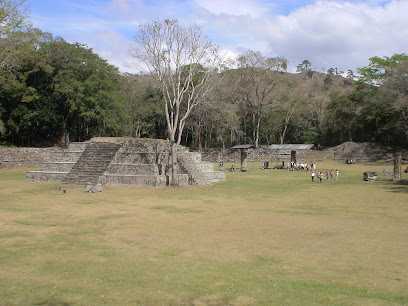
Café San Rafael
Experience the best of Copán at Café San Rafael: farm-fresh coffee, artisanal cheeses, and a relaxing bistro atmosphere await in the heart of Copán Ruinas, Honduras.
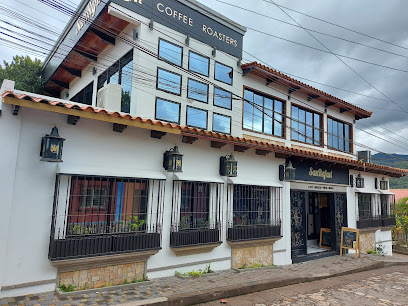
The Tea & Chocolate Place
Discover a world of flavors at The Tea & Chocolate Place, where artisanal teas and chocolates combine for an unforgettable experience in Copan Ruinas.
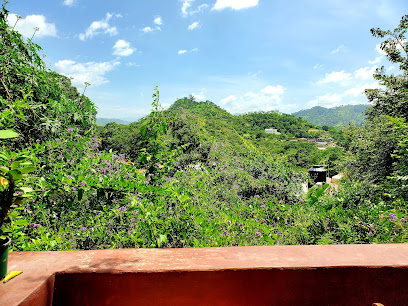
El Paseo de los Girasoles
Discover vibrant sunflower fields, savor local coffee, and explore the Honduran countryside at El Paseo de los Girasoles near the Mayan ruins of Copán Ruinas.
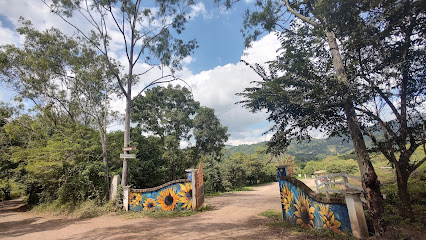
Café Welchez • Copán Ruinas
Experience the vibrant flavors of Honduras at Café Welchez, a charming café in Copán Ruinas known for its delicious coffee and inviting atmosphere.
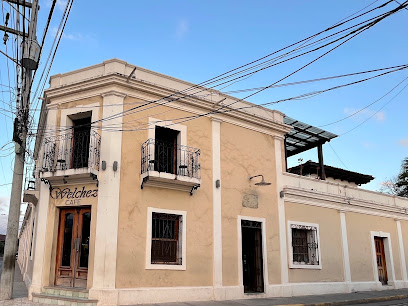
Hacienda San Lucas
Experience the heart of Copán Ruinas at Hacienda San Lucas, where tradition meets luxury in a breathtaking cultural retreat.
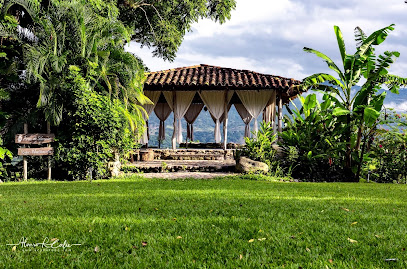
Mary Hotel & Restaurant
Experience the best of family dining in Copán Ruinas at Mary Hotel & Restaurant, where delicious meals meet warm hospitality.
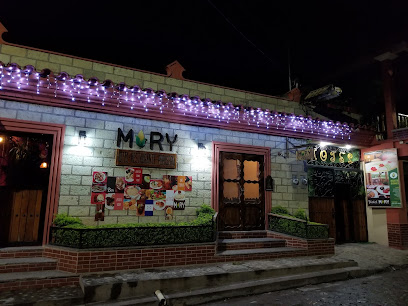
Hotel y Mariposario Mayan Hills
Discover the serene beauty of Hotel y Mariposario Mayan Hills, where tranquility meets the rich heritage of Copan Ruinas, Honduras.

Cafe Via Via
Experience global flavors and local culture at Cafe Via Via in Copán Ruinas, a vibrant hub for travelers offering delicious food, lively events, and tours to explore the region.
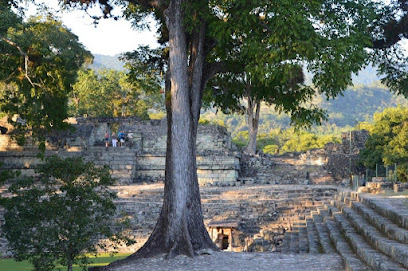
Sol de Copán
Experience authentic German beer and Bavarian cuisine in the heart of Mayan territory at Sol de Copán, the only German brewery between Mexico and Colombia, offering a unique culinary fusion.
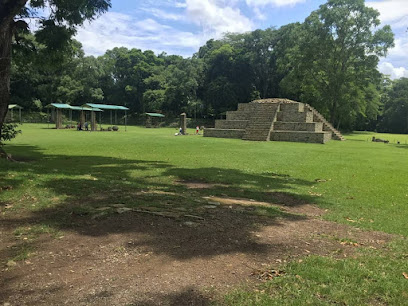
Berakah B&B
Experience comfort and convenience at Berakah B&B in Copán Ruinas, your ideal base for exploring Mayan history, vibrant culture, and natural beauty in western Honduras.

Acrópolis Maya
Explore the monumental Acrópolis Maya in Copán, Honduras, a UNESCO World Heritage site showcasing the heart of the ancient Mayan civilization and its remarkable architectural legacy.

Unmissable attractions to see
Acropolis of Quirigua
Explore the magnificent Acropolis of Quirigua, a UNESCO World Heritage Site, featuring stunning Mayan ruins and lush landscapes that tell ancient stories.
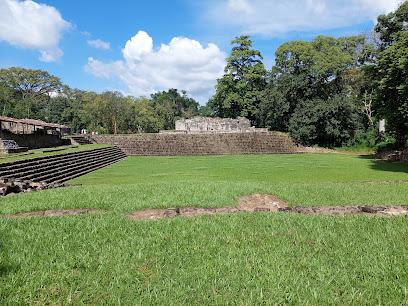
The Tea & Chocolate Place
Experience the essence of Honduran culture at The Tea & Chocolate Place in Copan Ruinas, where exquisite teas and handcrafted chocolates await.
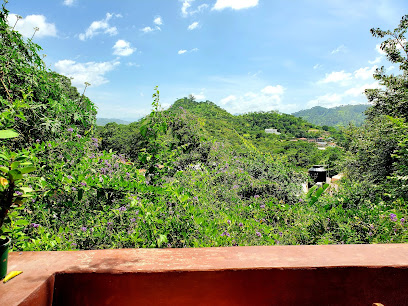
El Paseo de los Girasoles
Discover the serene beauty and local flavors at El Paseo de los Girasoles in Copán Ruinas, where nature meets culinary delight.
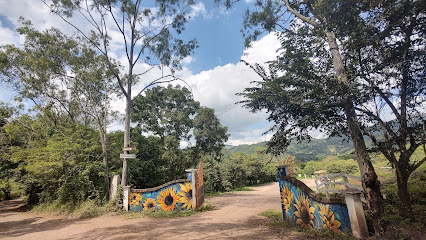
Macaw Mountain Bird Park
Experience the vibrant beauty of Macaw Mountain Bird Park, a sanctuary for exotic birds, nestled in the lush landscapes of Copan Ruinas, Honduras.
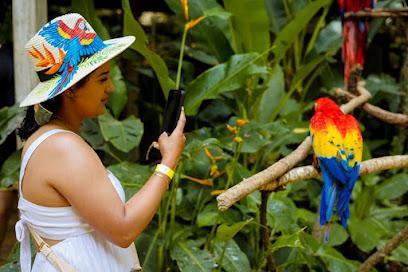
Museo de esculturas
Discover the enchanting world of the ancient Maya at Museo de Esculturas in Copan Ruinas, where history comes alive through stunning sculptures.
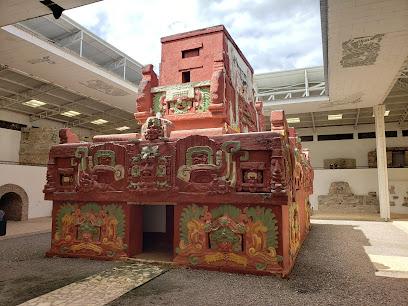
El Mirador
Explore the breathtaking natural beauty of El Mirador, a tranquil woodland escape in Guatemala, perfect for hiking and wildlife adventures.
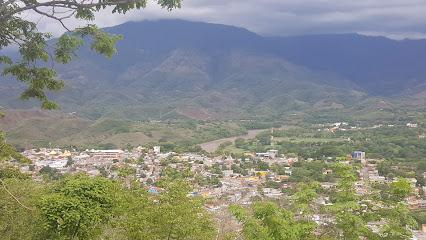
Museo Casa Kinich
Discover the ancient wonders of the Mayan civilization at Museo Casa Kinich, an essential stop in Copán Ruinas for history enthusiasts and curious travelers alike.
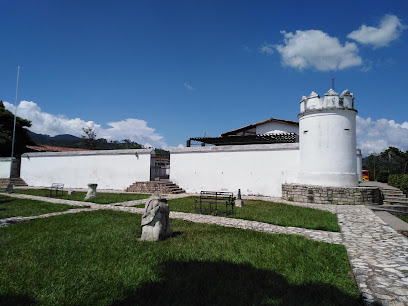
Copan
Uncover the ancient wonders of Copan, a UNESCO World Heritage site showcasing Maya heritage through stunning ruins and lush landscapes.
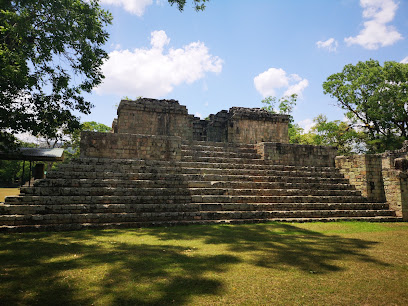
Templo de Rosalila
Explore the captivating Templo de Rosalila, a remarkable archaeological treasure that unveils the ancient Maya civilization's rich history and artistry.
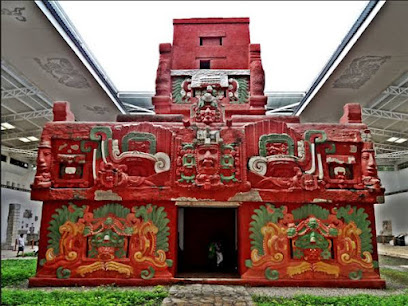
Museo Digital de Copán
Explore the rich history of the ancient Maya at Museo Digital de Copán, featuring immersive 3D experiences and captivating exhibits in Copan Ruinas.
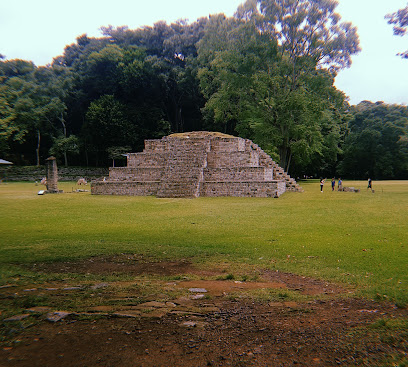
La Pintada Tours
Discover the ancient Mayan civilization and breathtaking landscapes at La Pintada Tours in Copan Ruinas, a UNESCO World Heritage Site.
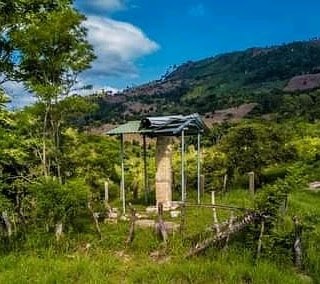
Copan Ruinas
Explore the captivating Mayan ruins of Copán Ruinas, a UNESCO World Heritage Site rich in history, culture, and natural beauty.
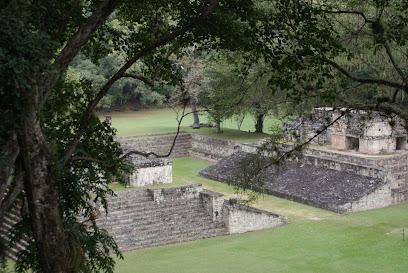
Essential places to dine
Carnitas Nia Lola
Discover authentic Honduran flavors at Carnitas Nia Lola in Copán Ruinas – where every bite tells a story.
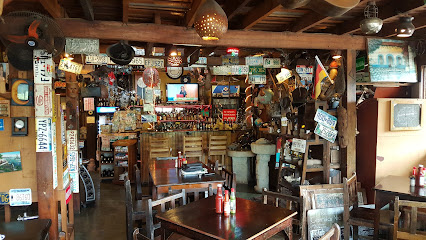
Mary Hotel & Restaurant
Discover the perfect blend of local flavors and family-friendly service at Mary Hotel & Restaurant in Copán Ruinas.
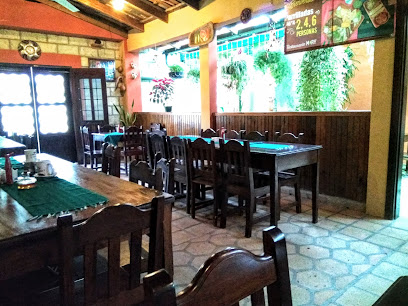
Los Asados Copán
Experience traditional Honduran cuisine at Los Asados Copán, where every bite tells a story of rich flavors and local heritage.
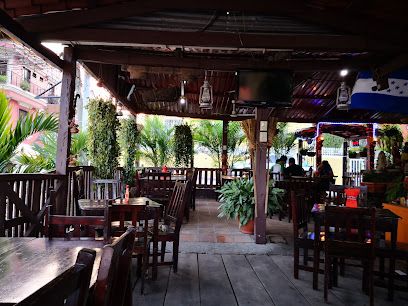
Restaurante La Casa de Todo
Experience authentic Honduran flavors at Restaurante La Casa de Todo in Copán Ruinas - where every meal tells a story.
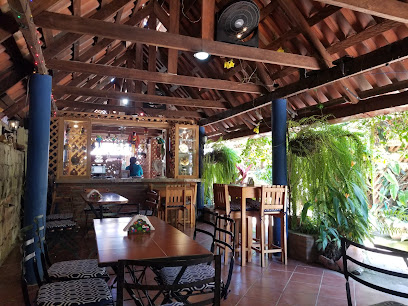
Cafe Via Via
Discover authentic Honduran cuisine at Cafe Via Via in Copán Ruinas – where flavor meets culture in a cozy setting.
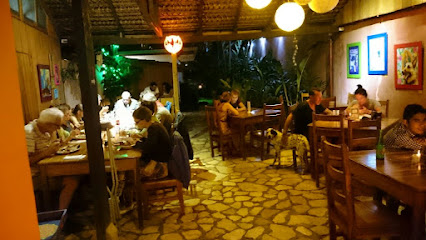
Sol de Copán
Experience authentic Honduran cuisine at Sol de Copán in picturesque Copán Ruinas - where every dish tells a story.
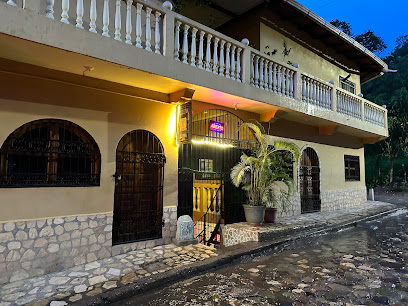
Restaurante Yaxkuk Mo
Experience authentic Honduran flavors at Restaurante Yaxkuk Mo in Copan Ruinas—where every dish tells a story.
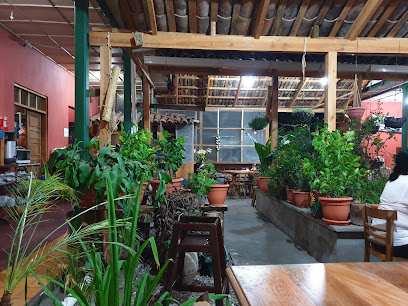
La Llama del Bosque
Experience authentic Honduran cuisine at La Llama del Bosque in Copán Ruinas - where local flavors meet unforgettable dining.
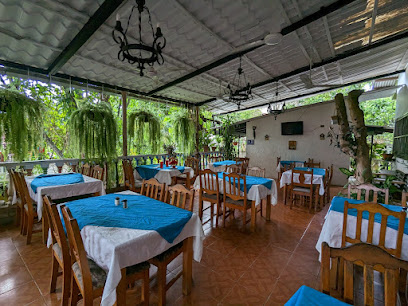
Buena Baleada
Experience authentic Honduran cuisine at Buena Baleada in Copán Ruinas - home of delicious baleadas and warm hospitality.
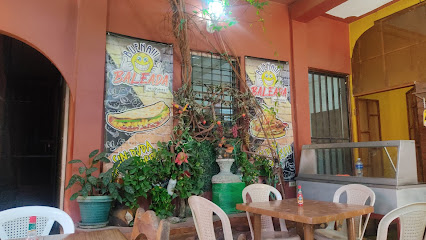
Tipico La Pintada
Experience authentic Honduran cuisine at Tipico La Pintada in Copán Ruinas – a culinary haven for travelers seeking local flavors.
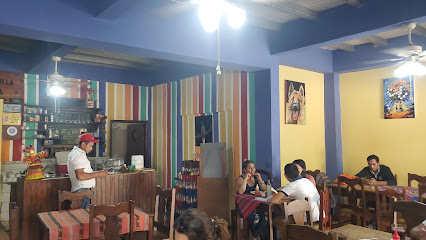
Restaurante Julita
Experience authentic Honduran flavors at Restaurante Julita in Copan Ruinas, where every dish tells a story of tradition and culture.
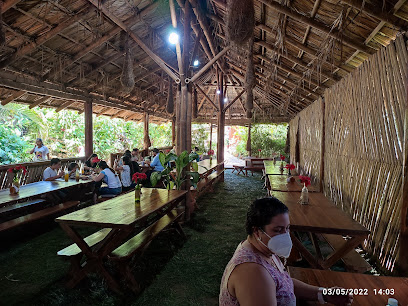
Moli's Pizza
Experience authentic pizza flavors in Copan Ruinas at Moli's Pizza, where every bite tells a story.
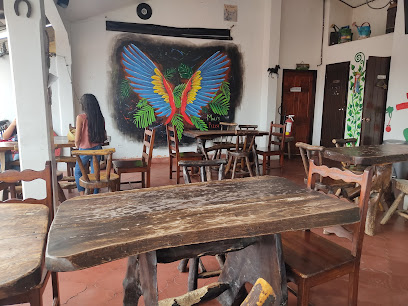
Restaurante Y Licuados Express
Discover authentic Honduran flavors at Restaurante Y Licuados Express in Copán Ruinas – where every dish tells a story.
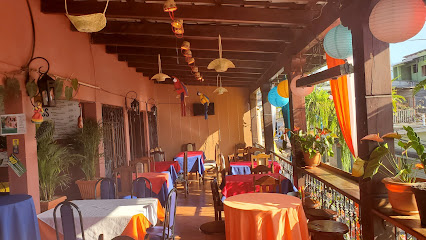
Ruta04 Restaurante y Bar
Discover authentic Honduran cuisine with stunning views at Ruta04 Restaurante y Bar in Copán Ruinas.
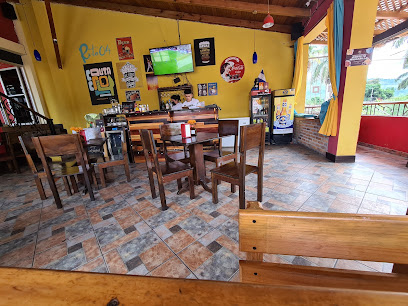
Churrasqueria Momo's
Experience authentic Honduran flavors at Churrasqueria Momo's in Copán Ruinas - where every meal is a celebration.
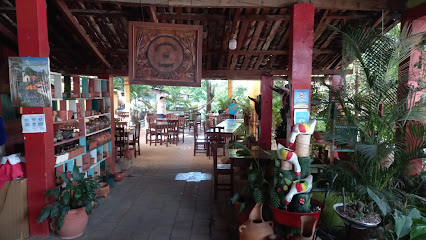
Markets, malls and hidden boutiques
Jardín de Mujeres Tejiendo Maya Chortí
Discover the rich Maya Chortí weaving traditions at Jardín de Mujeres Tejiendo Maya Chortí, where every piece tells a unique story.
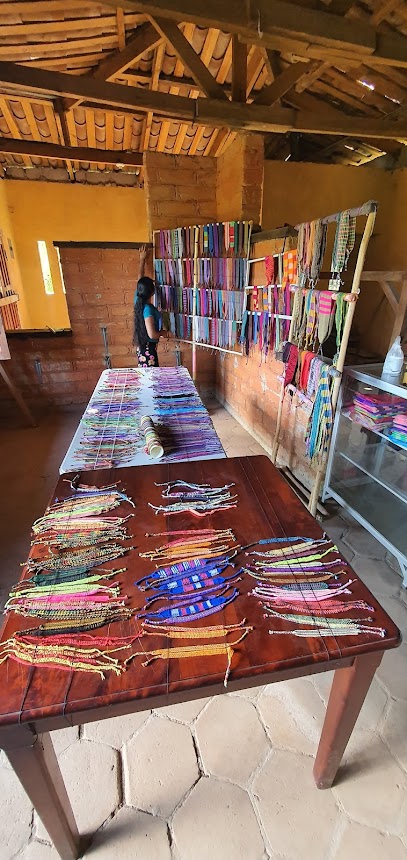
La Boutique del Artesano
Experience the artistry of Honduras at La Boutique del Artesano, a must-visit shopping destination in Copan Ruinas.
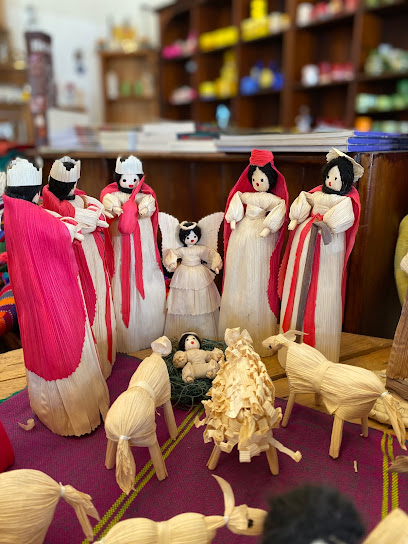
Estilos 0404 Pepe Jeans
Discover the stylish blend of local culture and modern fashion at Estilos 0404 Pepe Jeans in Copan Ruinas.
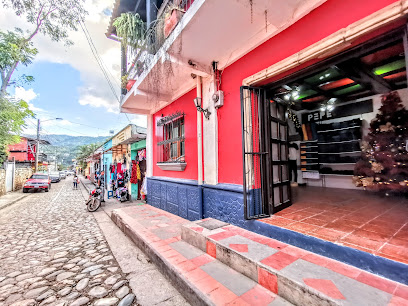
Museo Boutique Casa Maya
Experience the essence of Honduras at Museo Boutique Casa Maya, where local artisans showcase their incredible crafts in a vibrant boutique setting.
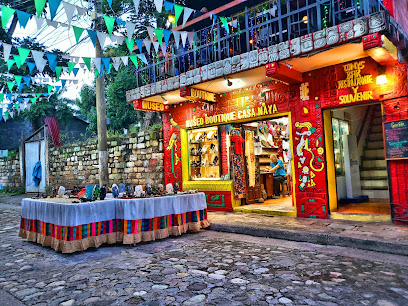
Souvenirs Yax Kuk'mo
Explore the cultural richness of Honduras at Souvenirs Yax Kuk'mo, your go-to destination for unique local crafts and clothing in Copán Ruinas.
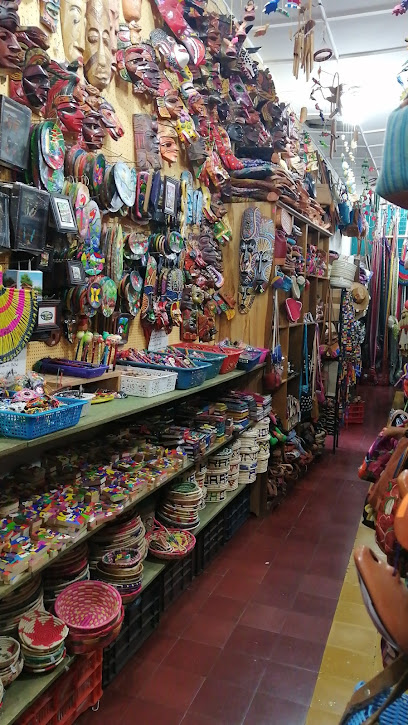
Portal del Valle
Explore Portal del Valle in Copan Ruinas for unique, handcrafted gifts that embody the spirit and culture of this enchanting region.
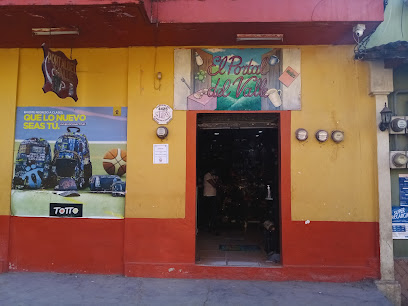
Tejidos
Discover authentic Honduran textiles and unique clothing at Tejidos in Copan Ruinas, where craftsmanship meets culture.
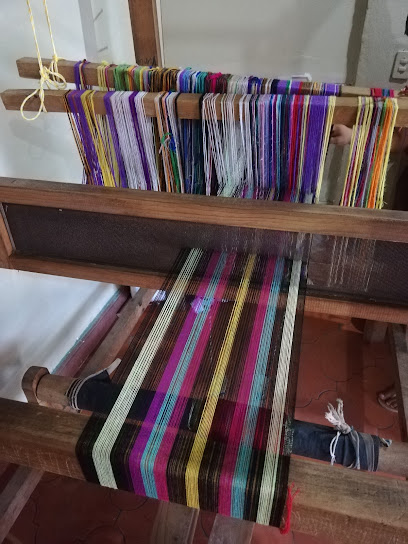
Ramos Store
Discover high-quality outdoor clothing and equipment at Ramos Store, your essential stop for adventures in Copan Ruinas, Honduras.
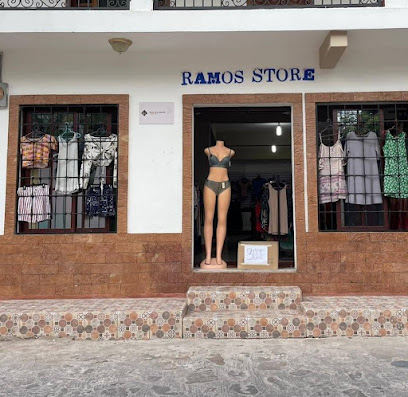
Stylo's Copán
Explore unique clothing and accessories at Stylo's Copán, where local craftsmanship meets modern style in the heart of Copán Ruinas.

Queen's fiestas
Discover the vibrant culture of Copán Ruinas at Queen's Fiestas, where local crafts and flavors unite in a festive shopping experience.
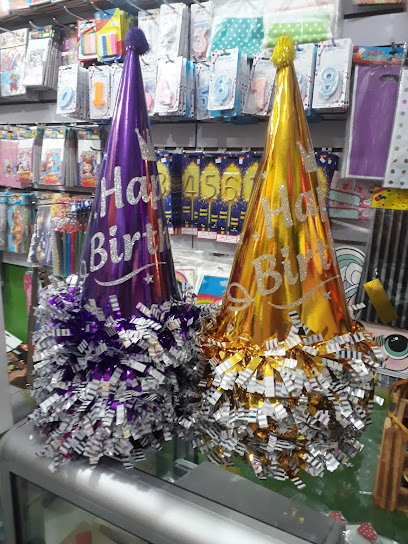
Pulperia Zoila
Discover local treasures at Pulperia Zoila, the charming general store in Copán Ruinas offering snacks, souvenirs, and a taste of Honduran culture.

PACER STORE COPÁN RUINAS
Discover the vibrant styles and unique clothing at PACER STORE, a must-visit shopping destination in Copán Ruinas, Honduras.

Variedades Wanino (Xiomara)
Explore Variedades Wanino in Copan Ruinas for unique clothing and vibrant local textiles that capture the essence of Honduran culture.
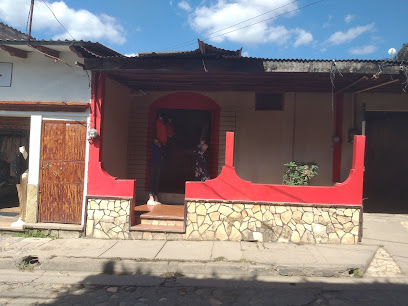
Lluvia de Bendición
Explore the vibrant floral haven of Lluvia de Bendición in Copán Ruinas, where nature’s beauty meets local artistry.
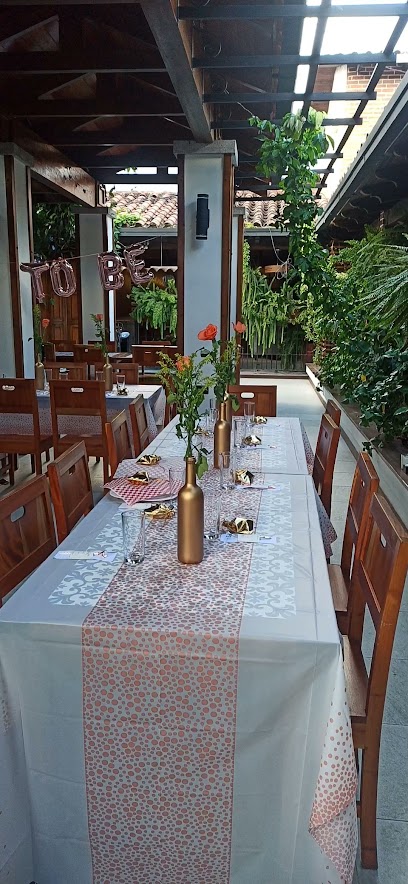
Tienda de telas mary
Explore a vibrant selection of traditional textiles at Tienda de Telas Mary in Copán Ruinas, the perfect spot for unique souvenirs.

Essential bars & hidden hideouts
Carnitas Nia Lola
Experience the authentic taste of Honduras at Carnitas Nia Lola, where every bite brings you closer to the heart of Copán's culinary heritage.
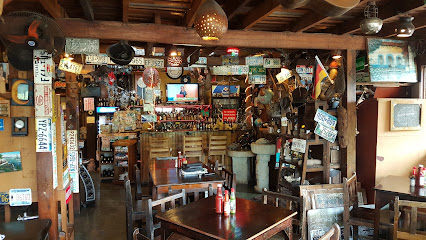
Hacienda San Lucas
Experience the beauty and culture of Copán Ruinas at Hacienda San Lucas, where comfort meets tradition in a stunning natural setting.
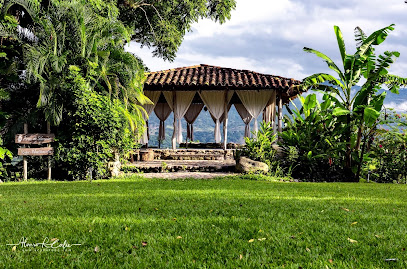
Restaurante La Casa de Todo
Experience authentic Honduran flavors at Restaurante La Casa de Todo in Copán Ruinas, where local charm meets culinary delight.
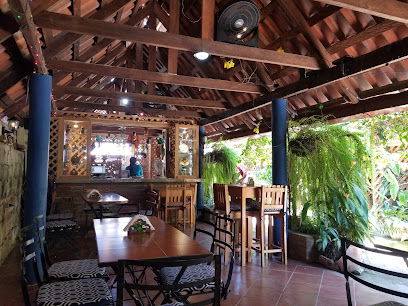
Cafe Via Via
Experience the authentic flavors of Honduras at Café Via Via, a cozy restaurant in the heart of Copán Ruinas, ideal for every traveler.
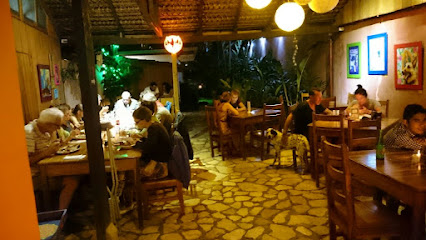
Sol de Copán
Experience the flavors of Honduras at Sol de Copán, where each dish tells a story of tradition and culinary artistry.
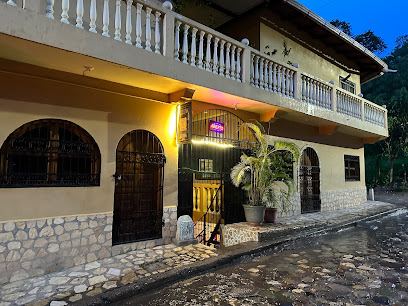
La Llama del Bosque
Discover the culinary delights of Copán Ruinas at La Llama del Bosque, where local flavors meet a beautiful natural setting.
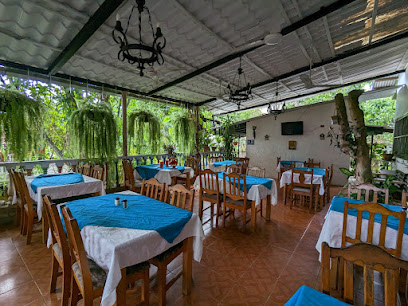
Tipico La Pintada
Experience authentic Honduran cuisine at Tipico La Pintada, a charming restaurant in Copán Ruinas serving delightful traditional dishes.
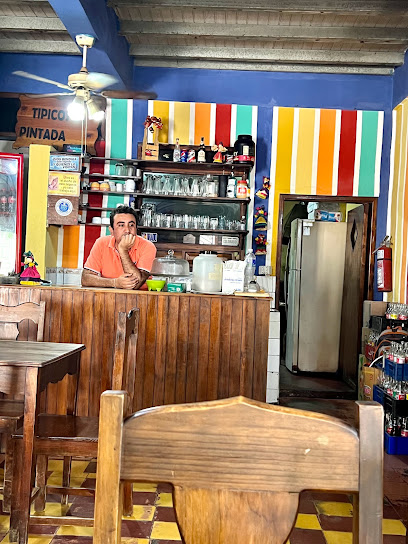
Restaurante Julita
Discover the culinary delights of Copan Ruinas at Restaurante Julita, where authentic flavors meet warm hospitality in a charming setting.
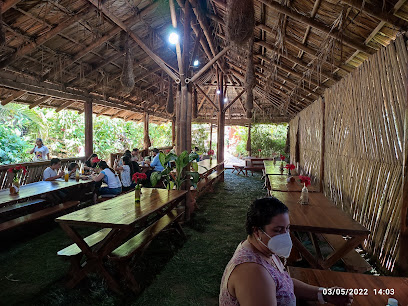
Bar y Restaurante La Sobrina de la Madre
Experience the vibrant flavors and lively atmosphere of Bar y Restaurante La Sobrina de la Madre in the heart of Copan Ruinas, Honduras.
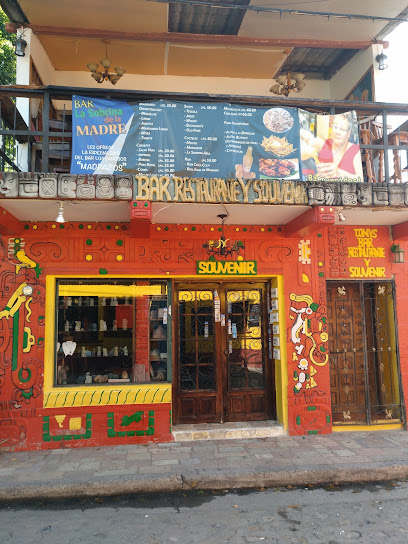
Ruta04 Restaurante y Bar
Experience the rich flavors of Copán Ruinas at Ruta04 Restaurante y Bar, where local cuisine meets a vibrant dining atmosphere.
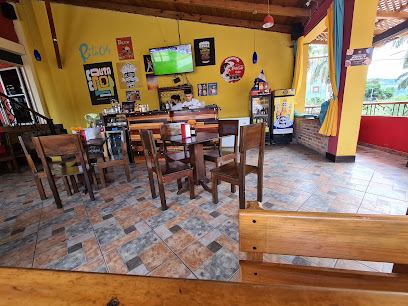
LOCAL
Experience authentic Honduran cuisine in a charming setting at this local favorite in Copán Ruinas, perfect for all travelers.
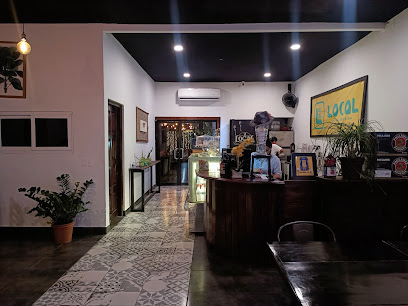
Déjà Vu
Discover the vibrant nightlife and exquisite dining at Déjà Vu in Copán Ruinas, where local flavors meet lively entertainment.
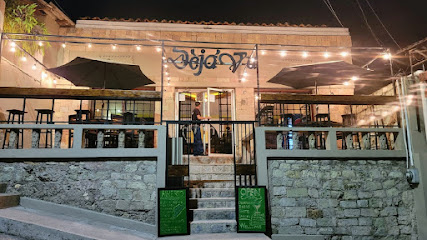
AMBAR
Experience the vibrant flavors of AMBAR in Copan Ruinas, where every grilled dish tells a story of local culinary traditions.
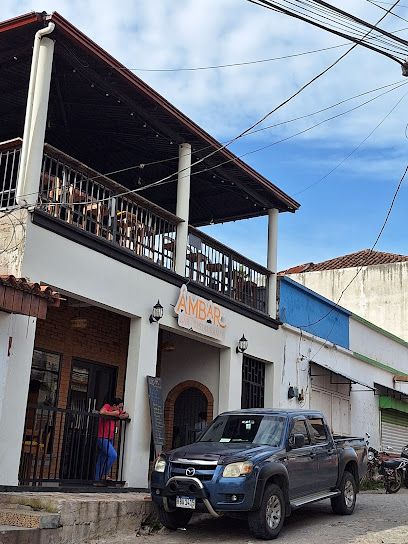
La Fogata
Experience authentic Italian flavors at La Fogata in Copan Ruinas, where culinary delights meet a warm atmosphere.
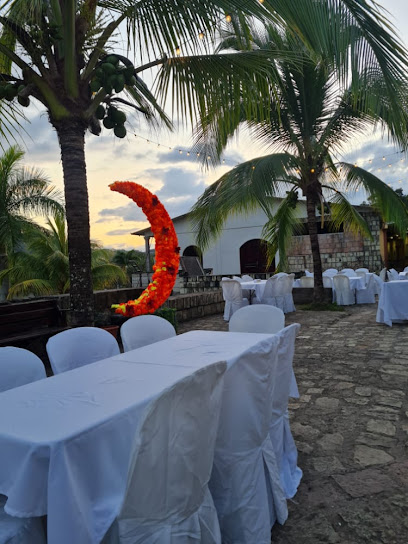
Local Phrases
-
- Hello¡Hola!
[O-la] - Goodbye¡Adiós!
[A-dios] - YesSí
[See] - NoNo
[No] - Please/You're welcomePor favor/De nada
[Por fa-vor/De na-da] - Thank youGracias
[Gra-cias] - Excuse me/SorryDisculpe/Perdón
[Dis-cul-pe/Per-don] - How are you?¿Cómo estás?
[Co-mo es-tas] - Fine. And you?Bien. ¿Y tú?
[Bee-en. Ee too] - Do you speak English?¿Hablas inglés?
[A-blas in-gles] - I don't understandNo entiendo
[No en-tien-do]
- Hello¡Hola!
-
- I'd like to see the menu, pleaseMe gustaría ver el menú, por favor
[Me gus-ta-ria ver el me-nu, por fa-vor] - I don't eat meatNo como carne
[No co-mo car-ne] - Cheers!¡Salud!
[Sa-lud] - I would like to pay, pleaseMe gustaría pagar, por favor
[Me gus-ta-ria pa-gar, por fa-vor]
- I'd like to see the menu, pleaseMe gustaría ver el menú, por favor
-
- Help!¡Ayuda!
[A-yu-da] - Go away!¡Vete!
[Ve-te] - Call the Police!¡Llama a la Policía!
[Ya-ma a la Po-li-cia] - Call a doctor!¡Llama a un doctor!
[Ya-ma a un doc-tor] - I'm lostEstoy perdido
[Es-toy per-di-do] - I'm illEstoy enfermo
[Es-toy en-fer-mo]
- Help!¡Ayuda!
-
- I'd like to buy...Me gustaría comprar...
[Me gus-ta-ria com-prar] - I'm just lookingSolo estoy mirando
[So-lo es-toy mi-ran-do] - How much is it?¿Cuánto cuesta?
[Cuan-to cues-ta] - That's too expensiveEsto es demasiado caro
[Es-to es de-ma-sia-do ca-ro] - Can you lower the price?¿Puedes bajar el precio?
[Pue-des ba-jar el pre-cio]
- I'd like to buy...Me gustaría comprar...
-
- What time is it?¿Qué hora es?
[Ke o-ra es] - It's one o'clockEs la una
[Es la u-na] - Half past (10)Las diez y media
[Las diez i me-dia] - MorningMañana
[Ma-ña-na] - AfternoonTarde
[Tar-de] - EveningNoche
[No-che] - YesterdayAyer
[A-yer] - TodayHoy
[Hoy] - TomorrowMañana
[Ma-ña-na] - 1Uno
[Oo-no] - 2Dos
[Dos] - 3Tres
[Tres] - 4Cuatro
[Kua-tro] - 5Cinco
[Sin-ko] - 6Seis
[Seis] - 7Siete
[Sje-te] - 8Ocho
[O-cho] - 9Nueve
[Nwe-ve] - 10Diez
[Diez]
- What time is it?¿Qué hora es?
-
- Where's a/the...?¿Dónde está el/la...?
[Don-de es-ta el/la] - What's the address?¿Cuál es la dirección?
[Cual es la di-rec-cion] - Can you show me (on the map)?¿Me puedes mostrar (en el mapa)?
[Me pue-des mos-trar (en el ma-pa)] - When's the next (bus)?¿Cuándo es el próximo (bus)?
[Cuan-do es el pro-xi-mo (bus)] - A ticket (to ....)Un boleto (para ....)
[Un bo-le-to (pa-ra)]
- Where's a/the...?¿Dónde está el/la...?
History of Copán Ruinas
-
Copán, located in the Copán Department of western Honduras, was a significant city of the Maya civilization. The earliest evidence of settlement dates back to around 1500 BCE, during the Preclassic period. The city began to flourish as a major cultural and political center in the Late Classic period (circa 5th-9th centuries CE).
-
In 426 CE, Copán's history took a pivotal turn with the arrival of K'inich Yax K'uk' Mo', the founder of a new ruling dynasty. Under his leadership, the city saw the construction of grand architecture and the establishment of complex social and political structures. The dynasty he founded would rule Copán for nearly four centuries.
-
The city of Copán is renowned for its impressive architectural and artistic achievements. Notable structures include the Hieroglyphic Stairway, which contains the longest known Mayan inscription, and the Acropolis, a complex of plazas, temples, and palaces. These structures not only served ceremonial purposes but also demonstrated the city's wealth and power.
-
The Hieroglyphic Stairway is one of Copán's most celebrated monuments. Built by Uaxaclajuun Ub'aah K'awiil, the fifteenth ruler, the stairway contains over 2,000 glyphs chronicling the city's history. This monumental staircase is a testament to the city's sophisticated writing system and its rulers' desire to immortalize their achievements.
-
During its peak, Copán was an important economic and cultural hub in the Maya world. It engaged in extensive trade networks, exchanging goods such as jade, obsidian, and pottery with other Maya cities and distant regions. The city was also a center for artistic and intellectual activity, attracting scribes, artists, and scholars.
-
The decline of Copán began in the late 8th century CE, culminating in the city's abandonment by the early 10th century. Several factors contributed to its decline, including environmental degradation, overpopulation, and political instability. The last recorded date on a Copán monument is 822 CE, marking the end of the city's prominent era.
-
The ruins of Copán were rediscovered in the 19th century by explorers such as John Lloyd Stephens and Frederick Catherwood. Since then, extensive archaeological research has been conducted, uncovering the city's rich history and its contributions to Maya civilization. Today, Copán is a UNESCO World Heritage Site and a major attraction for visitors interested in the ancient Maya.
-
The modern town of Copán Ruinas, located near the archaeological site, serves as a gateway for tourists exploring the ancient city. The town itself offers a blend of colonial charm and contemporary amenities, providing visitors with a comfortable base for their explorations. Local museums and cultural centers further enrich the experience by showcasing artifacts and offering insights into the region's history.
Copán Ruinas Essentials
-
Copán Ruinas is located in the western part of Honduras, near the border with Guatemala. The nearest airport is Ramón Villeda Morales International Airport in San Pedro Sula, approximately 180 kilometers away. From San Pedro Sula, you can take a direct shuttle service, a private taxi, or a rental car. The journey by road typically takes around 3 to 4 hours. Alternatively, you can take a bus from the main bus terminal in San Pedro Sula to Copán Ruinas; several companies offer daily services.
-
Once in Copán Ruinas, most of the town's attractions are within walking distance. Tuk-tuks (motorized rickshaws) are a popular and inexpensive mode of local transport. Taxis are also available for longer distances. If you plan to explore the surrounding areas, renting a car can be a convenient option, though roads can be rough in some places.
-
The official currency in Honduras is the Honduran Lempira (HNL). Credit cards are accepted in most hotels, restaurants, and shops in Copán Ruinas, but it is advisable to carry some cash for smaller establishments and local markets. ATMs are available in the town, but it's wise to withdraw sufficient cash before heading to more remote areas.
-
Copán Ruinas is generally a safe destination for tourists. However, standard precautions should be taken. Avoid walking alone at night, especially in poorly lit areas. Keep an eye on your belongings in crowded places. While Copán Ruinas has a lower crime rate compared to other parts of Honduras, it's always best to stay vigilant and aware of your surroundings.
-
In case of emergency, dial 911 for immediate assistance. The local police station and medical facilities are available in Copán Ruinas. It is recommended to have travel insurance that covers medical emergencies. For minor health issues, there are pharmacies in the town where you can purchase over-the-counter medications.
-
Fashion: Do dress modestly, especially when visiting religious sites and local communities. Avoid wearing overly revealing clothing. Religion: Do respect local customs and traditions. When visiting churches, dress conservatively and maintain a respectful demeanor. Public Transport: Do be respectful and polite to drivers and fellow passengers. Don't eat or drink on public transport. Greetings: Do greet people with a friendly 'Buenas' (Good day) or 'Hola' (Hello). A handshake is common in more formal settings. Eating & Drinking: Do try local delicacies and accept food offerings graciously. Don't refuse hospitality, as it is considered impolite.
-
To experience Copán Ruinas like a local, visit the local markets where you can buy fresh produce and traditional Honduran goods. Engage with locals, as they are often friendly and willing to share stories about the town's history and culture. Don't miss visiting the Copán Archaeological Site, a UNESCO World Heritage Site, and the Macaw Mountain Bird Park & Nature Reserve. For a unique experience, take a horseback ride through the surrounding countryside.
Trending Landmark in Copán Ruinas
Nearby Cities to Copán Ruinas
-
Things To Do in Santa Rosa de Copán
-
Things To Do in Gracias
-
Things To Do in Suchitoto
-
Things To Do in Rio Dulce
-
Things To Do in Santa Ana
-
Things To Do in Chalchuapa
-
Things To Do in Puerto Barrios
-
Things To Do in Livingston
-
Things To Do in San Salvador
-
Things To Do in San Pedro Sula
-
Things To Do in Punta Gorda
-
Things To Do in Guatemala City
-
Things To Do in La Libertad
-
Things To Do in Puerto Cortés
-
Things To Do in Antigua Guatemala











